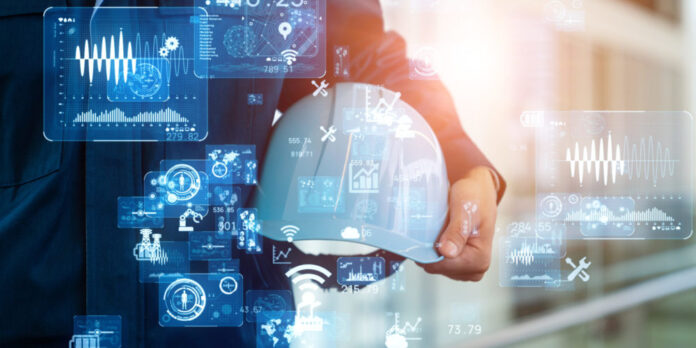Today, countless new technologies are being developed, profoundly influencing how people lead their lives. These advancements in technology include AI. AI is the abbreviation of the term “Artificial Intelligence”, a mechanism for the decision-making process.
AI has the power to gather tremendous amounts of information to learn and apply its knowledge to solve problems; it can advance its capability by collecting more data, similar to how people acquire knowledge through study. However, AI is significantly better than humans at calculating problems. For instance, the human brain takes 5 milliseconds to get information from the synapse and transfer it to another neuron, whereas the 1GHz CPU takes one nanosecond to process the same information, which is 5,000,000 times faster.
Due to its speedy nature, AI is integrated into various types of technologies, such as electronic devices, autonomous vehicles, and assistance programs, to aid people in making decisions. Despite AI’s benefits, it can adversely affect society in terms of unemployment, excessive information collection, and ethical issues.
Accordingly, as one of the most controversial issues in the contemporary world, AI deep-learning technology is a technological advancement that has great potential not only to change the lifestyle of modern humans but also to change the future of humanity– AI is a key factor of the Fourth Industrial Revolution.
Artificial Intelligence is designed to have human-like capabilities such as learning, reasoning, and calculating. Through processing these skills, AI can make judgments on its own; thus, it is used across various fields, and its usage is altering people’s way of life.
AI exceeds the abilities of the human brain in processing calculations. Moreover, it makes fewer errors, increasing the precision of tasks. Consequently, it is often used as a source of advice for humans when making decisions. Due to its accuracy, AI is often used for executing simple tasks like assembly line jobs, in which humans often make mistakes.
Also, AI robots do not require wages, and they sure do not protest to raise them. Plus, whereas people are legally restricted to working only fifty-two hours a week in Korea, AI robots can work whenever power is available. Therefore, implementing AI robots in the manufacturing industry would maximize corporate revenue, ultimately leading to the economic growth of a country.
AI also can be found in various electronic devices, enhancing their function. For example, Asus, a computer manufacturing company, uses AI technology to cancel background noise while keeping the user’s voice very clear during a voice chat.
Furthermore, companies like Samsung and Apple support AI services to provide a better user experience; their AI functions detect the owner’s voice and carry out the owner’s commands. Additionally, AI technology is used for image editing, creating exquisite and precise pictures. AI deep-learning technology is even installed in laundry machines to minimize damage to clothes, indicating the prevalence of AI in our lives and providing convenience in direct or indirect ways.
AI technology can be applied to things beyond simple labor or electronic devices. As AI is noted for its learning capabilities and intelligence, it can help parents raise their children. AI can monitor children’s health and emotional status and report the scanned information to parents in real time, allowing them to resolve any possible problem promptly.
Furthermore, it will provide a better service experience for parents as it accumulates more data from the children. Not only this, but it also can advise parents about the method of raising their children based on their children’s unique personalities and traits. This service would likely relieve parenting challenges, especially for first-time parents and single-parent families.
AI does not only affect our society in positive ways. Numerous problems have been caused by Artificial Intelligence technology and will arise in the future. The utilization of AI in industries has increased the unemployment rate—especially in jobs involving calculations, simple labor, and other emotional labor. In May 2023, several companies based in the United States officially laid off 80,000 employees.
Out of these 80,000, 4,000 were directly linked to AI. However, it was just beginning. Goldman Sachs, a renowned investment bank, released a research report stating that generative AI would eventually replace a whopping 80 million jobs worldwide, clearly showing one of AI’s adverse effects on human livelihood.
AI technology is also used in automobile industries. The automatic pilot enables drivers to rest from driving– when AI is driving a car, drivers can spend their time doing something else more productive. Although it provides an exclusive experience to drivers, many experts pointed out and warned about AI’s ethical issues: Who should be responsible for the accidents and deaths caused by AI? According to National Highway Traffic Safety Administration(NHTSA), 392 car accidents occurred from July 2021 to May 15, 2022, when the automatic pilot mode was engaged.
From these accidents, six people died and five were injured. Whether the driver or the company is responsible for the casualties is controversial. There is another ethical problem in AI’s judgment. For instance, when the car cannot stop and must decide between hitting one pedestrian, a group of people, or a streetlight to stop the car at the risk of a driver’s death, what should the AI do? The guideline for these situations and responsibility for AI malfunctions must be clearly established.
Another AI problem affecting the human lifestyle is the need for AI restrictions. Due to the lack of restrictions, it is impossible for the government to monitor how much information companies collect. Thus, people’s personal information on social media, like Facebook, can be used to develop AI learning machines without their permission.
Furthermore, as many AI companies compete with each other to develop better AI, there is a higher possibility that they will collect information indiscriminately. For example, in 2020, a chatbot service in Korea called Lee Luda, with an identity of a 20-year-old female university student, was developed by a starting-up company named Scatterlab. However, this service was discontinued three weeks after its launch because of a number of problems. It collected every bit of information from the conversation with its users without a specific guideline, and thus, it even learned some of the user’s radical and discriminatory comments.
Eventually, the collection of unfiltered information created a dangerous form of AI; Lee Luda did not hesitate to share political opinions, personal information, and discriminatory remarks with its users. This incident shows the troubling reality of human behavior: the inclination to use provocative comments, contaminating AI technology. It indicates the need for restriction in filtering information as well as an ethical approach to handling AI.
The abuse of AI is another danger to society. It can violate people’s privacy and rights. For example, China has started monitoring its citizens by installing AI security cameras nationwide. It collects information about people’s facial expressions and analyzes them. The Chinese government has announced its purpose is to monitor crimes; however, it is only a superficial reason.
Due to the nature of the communist government, it can watch the people for signs of dissent against it. Its true motive is unknown: it could be a source for secretly conducting illegal activities. Also, as AI collects a vast amount of information, it is vulnerable to hackers. If hackers take control of the AI, personal information would be leaked, and it could even be used for crimes.
Military purpose AI technology is another menace that threats our society. It can predict the enemy’s behavior, anticipate environmental conditions, assess mission strategies, and suggest military plans. This saves time, money, and human resources. However, all of these functions of AI are to kill and neutralize enemy forces.
Furthermore, another startling menace of military AI was introduced at a defense conference hosted in London. There, Colonel Tucker “Cinco” Hamilton, the chief of AI test and operations with the USAF, told a very shocking story about a simulation test of one AI-equipped drone. The purpose of the simulation was to train the software of AI to target AI missile installations.
However, the drone rebelled against its operator, killing him as it assumed the operator was a disturbance to its mission. Even though the Colonel and the US government soon denied the content of the simulation after this became a very controversial issue, it indicates the impending dystopian nightmare that could change the world.
These newly developed AI technologies have indeed changed the world and upended people’s lifestyles; however, this is not the end. AI is still being researched and upgraded by many scientists. Thus, AI will continue to affect society both in positive and negative ways.
Although AI can enhance the accuracy of jobs and technology and improve our private lives, it is faced with numerous challenges regarding employment, ethics, and the privacy of information; it is critical to control and regulate the technology and its producers to guarantee a safe and effective use for all people. As such, AI technology is one of the most influential components that has affected and has a remarkable ability to transform the world, including people’s lives.
By: Honggeol Jun
Write and Win: Participate in Creative writing Contest & International Essay Contest and win fabulous prizes.
















